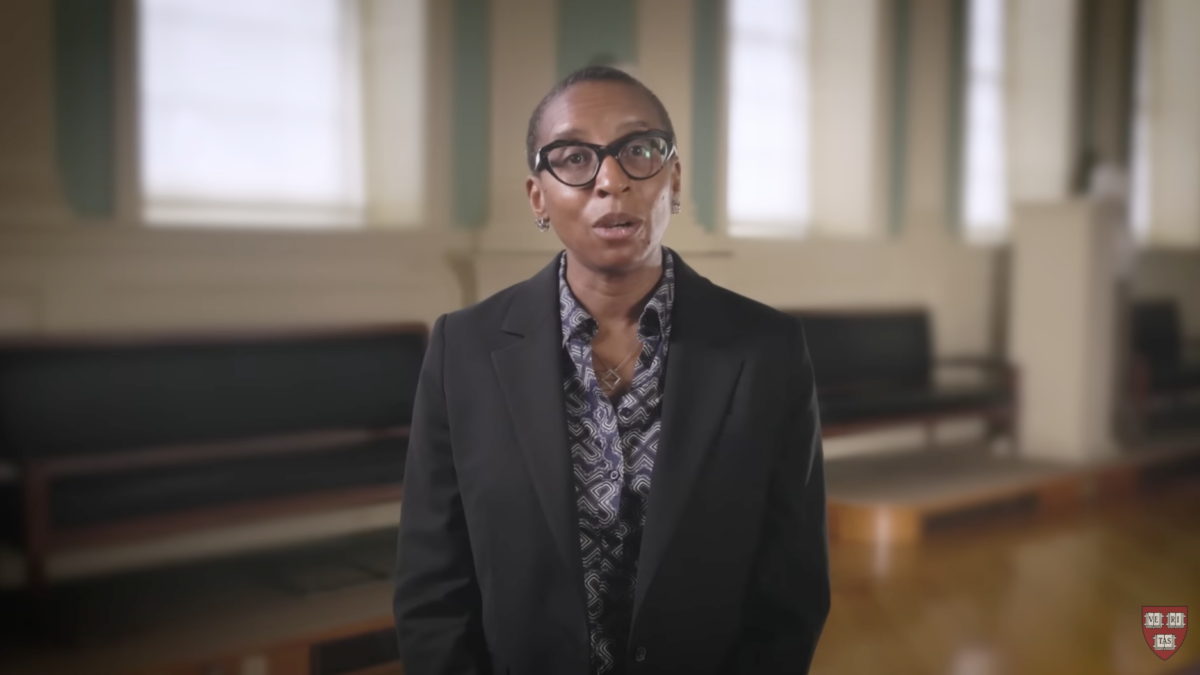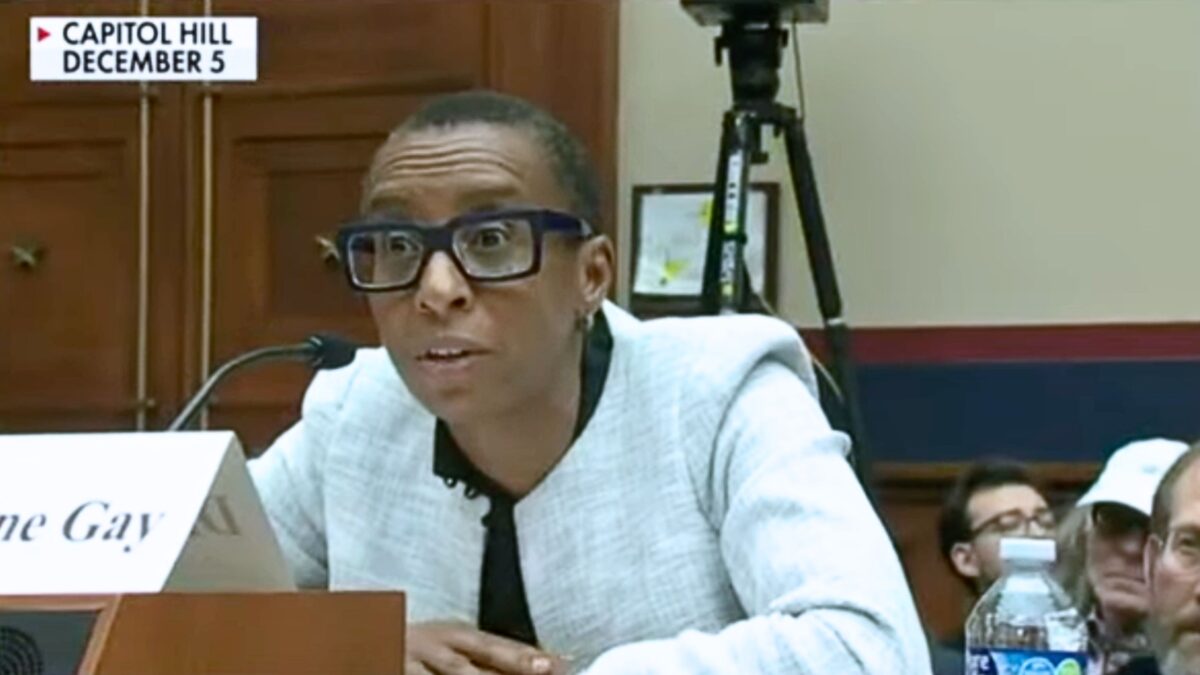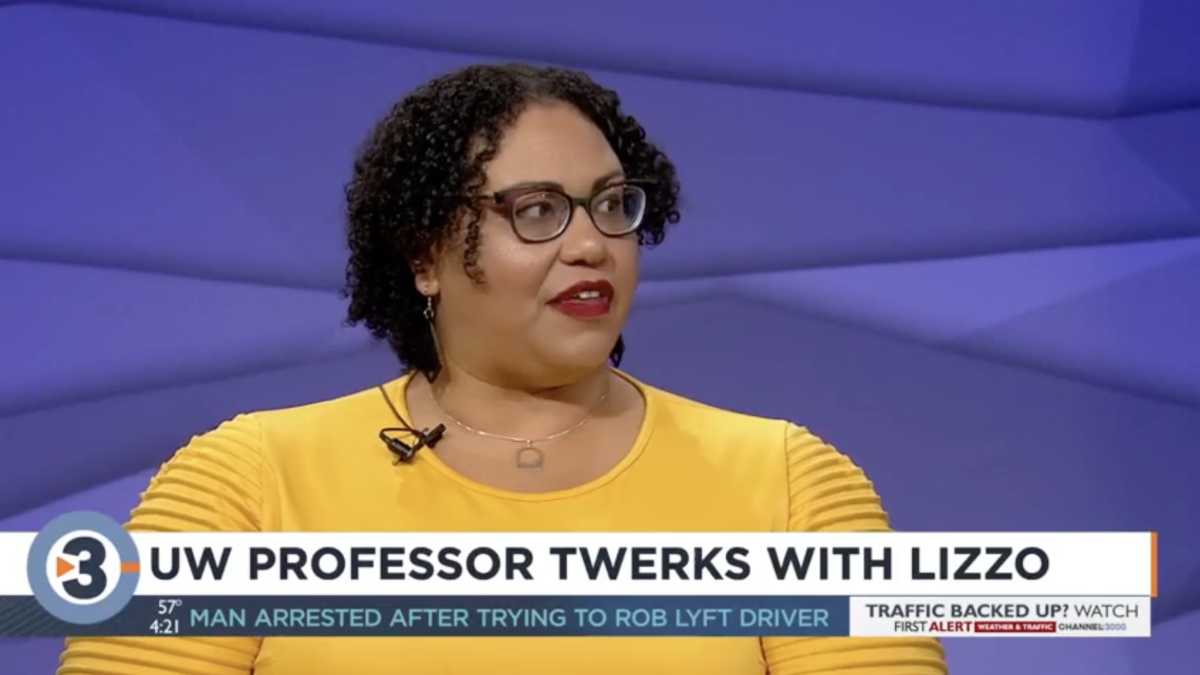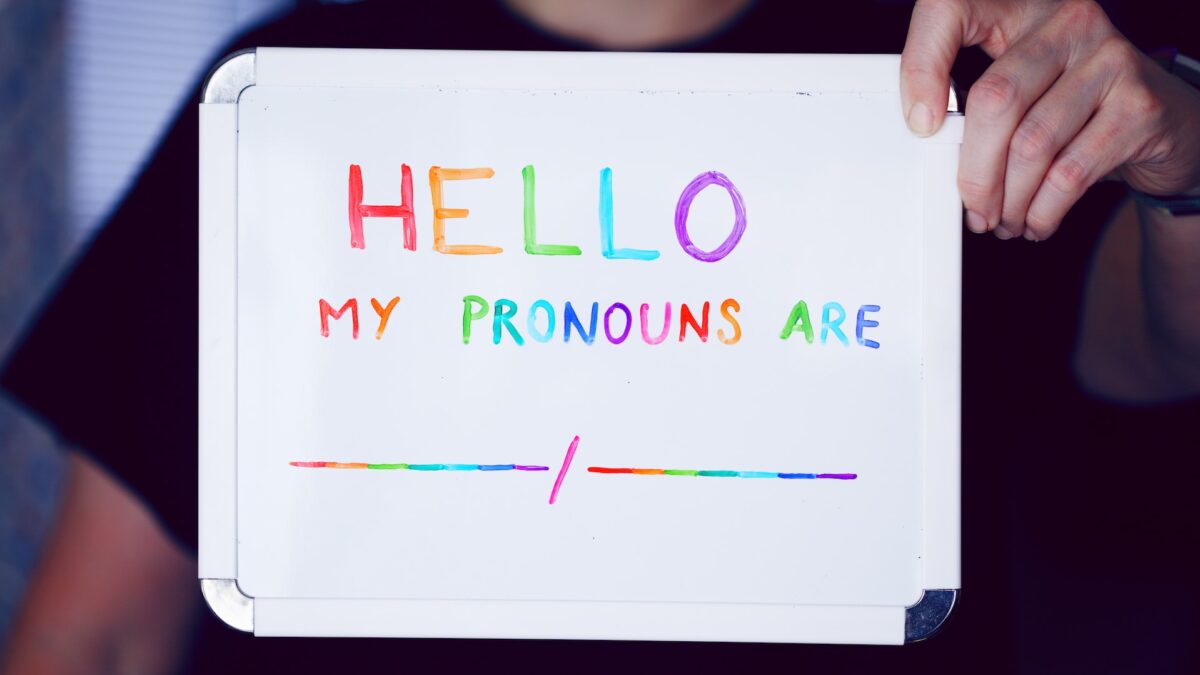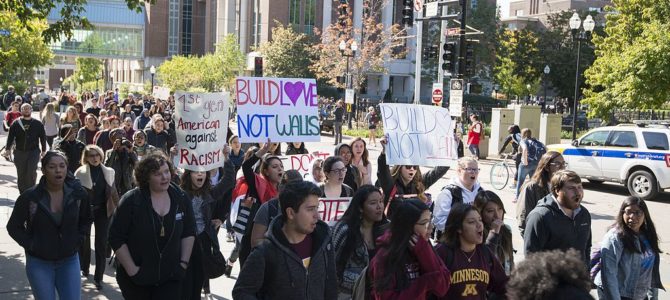
Bring together immature adolescents with leftist professors and the inevitable outcome is the current crisis in higher education. The conditions on most American campuses should not surprise any people who are aware of the nature of adolescence. The educators running them, however, seem particularly ignorant. They condone incivility, tolerate infantile behavior, and encourage such silliness as “redefining gender.” They cave under threats and apologetically submit to the most outrageous student demands.
Contemporary educators are curiously insensitive to one aspect of adolescent development in particular. When immature youths with fragile impulse control get no help (e.g., firm limit-setting) from adults in authority, their control over their sexuality and aggression worsens, and they act on their impulses more often.
This behavior reflects not only diminished self-control, but also an attempt to locate desired boundaries. However, neither meeting the developmental needs of students nor providing them a liberal education are primary concerns of many American academics. More important to them is inculcating students with the leftist political and cultural ideology they champion.
Replacing Religion with Bad Politics
Institutes of higher education not so long ago acted in loco parentis. American colleges and universities once took on some of the functions and responsibilities of parenting the students entrusted to their care. Curfews were imposed, dormitories were sex-segregated, alcohol use was strictly regulated, and rules of conduct governed relationships between the sexes. This campus culture aided young people in a most difficult task of adolescence and young adulthood—the control and mastery of a compelling, and often unruly, sexual drive.
Now, except in some conservative religious institutions, the old rules don’t apply. On many campuses, anything goes. When adolescents and immature young adults are given free license without responsibility, chaos inevitably ensues. Casual, alcohol-fueled sex, with its inevitable morning-after recriminations, is common. Gone are the standards of morality, respect, and decorum that traditionally governed relations between the sexes.
Racial, class, and sexual identity politics roil campuses, which typically abound with student activist groups stridently espousing passionate causes. This is accompanied by hostility toward those with non-conforming views and demonization of others with accusations of bigotry and hatefulness.
Especially in our most elite and prestigious colleges and universities, a pervasive contempt also exists for more traditional institutions and beliefs such as patriotism, religion, family, democracy, and the military. These foundational principles have historically been intergenerational transmitters of social and cultural values, and sources of national pride.
Immature adolescents are simply acting out what their professors fervently believe, model, and teach. The activists who disrupt campus life, prevent those with dissenting ideas from speaking, and seize control from faculty and administrators are doing their exemplars one better. Rather than just calling people names, as their mentors model the tactic of demonizing dissenters, they act out their anger. This represents not just their own aggression, but that of their teachers as well, whose vicarious gratification is not lost on students.
Many educators have trouble setting limits on obstructive and aggressive behavior precisely because their students are doing what they would like to do themselves. Most egregiously, many faculty and administrators not only condone but support suppressing free speech of those who dissent from leftist ideology. A vocal minority even advocate violence against what they designate “hate speech.” Students should be taught that the First Amendment guarantees freedom of speech and religion—it’s not only a bedrock of our liberal democracy, but a sacred American principle.
How Adolescents Become Adults
After high school, young people embarking upon the next phase of their lives—commonly in college, the military, or the workforce—should have completed at least some of the tasks of earlier adolescence. Then, they can face the rigors of young adulthood—establishing autonomy, developing extra-familial relationships, and equipping themselves with the skills to achieve their aspirational goals—with a stable sense of personal identity and a solid system of values and aspirations. A strong and principled moral compass should be at the core of their sense of self.
Moving from the role of a dependent child under parental control to an independent and autonomous adult is a crucial task of adolescence. Eric Erikson, probably the twentieth century’s most influential student of culture and human psychosocial development, referred to this task as the “identity crisis” of adolescence, one often fraught with generational conflict. Failure in this transitional task can result in an unstable sense of self.
Normally, adolescents transitioning from parental dependency to self-sufficiency form ephemeral attachments to extra-familial figures, such as teachers, coaches, and popular celebrities with adolescent appeal. These transitional identifications, which can be quite intense and fickle, serve as a kind of safe way-station in transit to the relationships of mature adulthood.
The emancipation process normally continues as students mature, both in controlling strong sexual drives and in channeling them into reciprocal, empathic, and respectful relationships with the opposite sex. This traditional maturing function of college life, as important as the intellectual, is simply not available on many college campuses.
Many adolescents who become consumed in the culture wars have not resolved their identity crisis. Such youths, in effect, are still in the mid-adolescent transitional stage: immature, impressionable, and still seeking to define themselves. But today, their identifications are with the icons of the political left.
Their mentors are the left-wing professors who dominate the faculty in most American colleges and universities. Absent a secure sense of self derived from stable parental models, unformed young people are easily influenced by the ethos of absolute certainty and moral and intellectual superiority on university campuses.
Replacing the Transcendent With the Temporal
The values that shaped the consciences of previous generations of American youth were grounded in the Judeo-Christian religious tradition. Among these values are the sanctity of marriage between a man and woman, a child’s need for both a mother and a father, the importance of sexual continence before marriage, and the recognition that casual sex damages human relationships.
These codes of sexual morality have been foundational to the Judeo-Christian value system for millennia, but the law of the Hebrew Bible and the moral codes of the Christian New Testament derived from it have yielded to multicultural relativism.
The belief that the Old and New Testaments are divinely inspired is a laughable proposition to postmodern sophisticates. Mainline Protestantism, so influential in American history, has sadly reached the same conclusion in its watered-down theology. Those whom it has failed, left with no religious belief or transcendent faith as a core to their identity, are easy prey for the tactics of those who equate orthodox sexual morality with bigotry and small-mindedness.
A diminishing remnant of religious believers holds that there are God-given, transcendent absolutes governing such things as sexual morality and family structure. Unfortunately, without religious faith to give meaning to their lives, many Americans are passively compliant with leftism. The children of such parents are likely to be among those who arrive on campus lacking a firm sense of personal identity. Youths without transcendent values of their own are attracted to the secular religious shibboleths held by their faculty mentors.
Causes such as climate change, abortion, immigration, gun control, and LGBT advocacy replace Judeo-Christian religious beliefs for the militantly anti-religious. The desperate tenacity with which ungrounded youths cling to such causes is evidence that such ideology is too fragile and insubstantial to serve as a building block of personal identity in the first place.
Those who know who they are and what they believe are not threatened by dissent. They have no need for censorship or “safe spaces.”
It’s Time for Parents to Speak Up
How are the indoctrinated social activists roiling our campuses likely to turn out? The fact that many campus firebrands of the 1960s and ‘70s settled into conventional lifestyles should not be reassuring. Many were motivated by strong personal values. In the civil rights movement, young people risked their lives, and some even died, in passionate commitment to a noble cause. In contrast, many of today’s youths are searching for something—anything—to believe in. Idolatries, identity politics, and iconoclasm are flimsy foundations for building character.
Parents of college-aged children should be aware of what awaits their offspring on campus. Those of a conservative bent, whether religious or not, should know that in many colleges, particularly in the most elite and prestigious, their children will be subjected to a far-left ideology that brooks no absolute or transcendent truths or values. Sexual morality convictions will be tested. Parents who believe their children’s personal values are strong enough to sustain them in such institutions may be naïve.
Identity politics are vicious and morally corrosive. A young person who risks being labeled a “deplorable” if he or she voices an unsanctioned opinion is likely to be quickly bludgeoned into silence. Such an experience is the antithesis to the free and open exchange of ideas that a liberal education requires. Parents sometimes unknowingly pay big bucks to submit their children to this experience.
What can families of faith and those with traditional cultural values do? They can be selective about whom they support at the polls, scrutinize the colleges they choose for their children, and be vocal about the reasons for their choices. They can influence the colleges and universities their tax dollars support. They can demand and effect meaningful campus diversity in a balanced conservative and liberal faculty to teach their children. Rather than passively withdrawing, families should actively engage to bring change.


